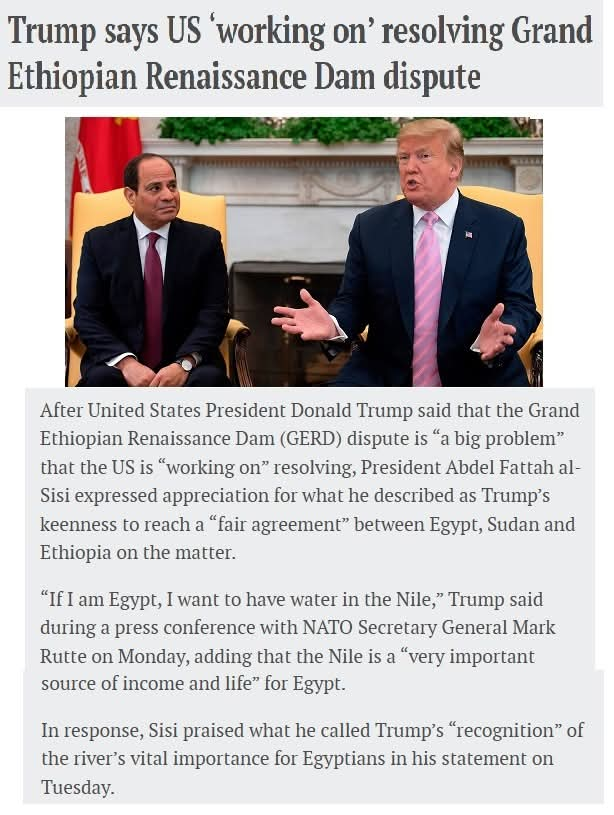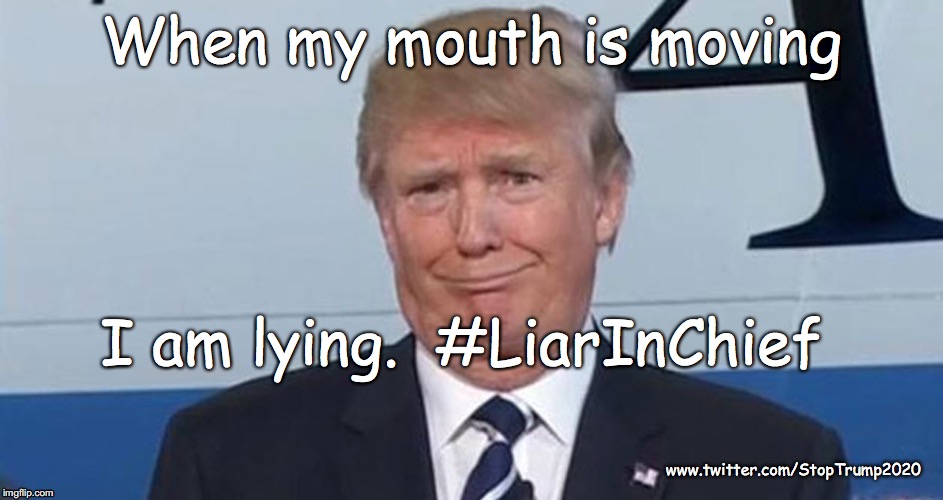President Sisi applauded Trump for «acknowledging» how critical the Nile is to Egypt’s survival.
It looks like Egypt will end up getting its way; especially with Abiy, who has a track record of caving under pressure. After all, he's in a deep economic crisis and is desperately counting on the IMF and World Bank to bail him out.
 It might've to do with this, as well.
It might've to do with this, as well.  He doesn't want to lose Egypt to China.
He doesn't want to lose Egypt to China.
________
Trump Claims U.S. Funded GERD, Signals Mediation Between Egypt and Ethiopia
ETHIOPIA — President Donald Trump has reignited the debate surrounding the Grand Ethiopian Renaissance Dam (GERD), claiming that
American taxpayers largely financed the project and that Washington has a responsibility to intervene in the ongoing Nile water dispute between Egypt and Ethiopia.
Speaking on the matter, Trump expressed concern over the dam’s impact on Egypt, calling the Nile
the lifeline of over 100 million people.
He suggested that the United States, as a presumed financier of the GERD, should take a leading role in bringing both countries to the negotiating table. Trump also hinted in the past of the possibility of Egypt military bombing the dam to oblivion, if the situation remains unresolved.
Todate, no Ethiopian official has publicly refuted Trump’s claim about U.S. funding. This stands in contrast to the narrative promoted domestically in Ethiopia for over a decade, in which the GERD has been hailed as a self-financed national project built through public donations and bond sales.
However, recent remarks by Abiy Ahmed have cast doubt on that narrative. For the first time, Abiy revealed that only 12 billion birr (about 10% of the dam’s total 100 billion birr cost) was raised through domestic contributions over the past 13 years. With international lenders like the IMF and World Bank allegedly barred from financing the project due to Egyptian lobbying, questions remain about who covered the remaining 90%.
Trump’s comments suggest the U.S. may have quietly financed the bulk of the project, potentially giving Washington the leverage it now seeks to mediate the dispute.
As negotiations loom, observers believe Egypt may emerge with significant concessions, thanks in part to Trump’s involvement. The real challenge, however, could lie in how PM Abiy will frame the outcome to the Ethiopian public, especially if the country is seen as backing down.
Celebrating compromise as victory is not unprecedented in Ethiopian politics. Previous examples include the ruling on the EEBC border commission with Eritrea and the Pretoria Agreement that ended the 2020–2022 war with the TPLF, both of which were portrayed domestically as political triumphs despite the contrary.

